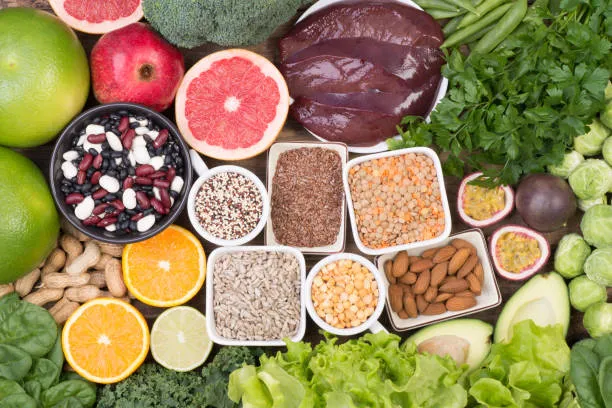
8 Must-Have Nutrients for Pregnant Women — Are You Getting Enough?
Share
Pregnancy is a transformative time, and ensuring proper nutrition is essential for both maternal health and fetal development. The body’s demand for key vitamins and minerals increases significantly, making it important for expectant mothers to maintain a well-balanced diet. Getting the right nutrients helps support the baby’s growth, reduces the risk of complications, and enhances the mother’s overall well-being.
One of the most critical nutrients during pregnancy is folic acid, which plays a vital role in preventing neural tube defects in the developing fetus. Found in leafy greens, beans, and fortified cereals, folic acid is recommended even before conception to ensure proper neural development in the early stages of pregnancy. Along with folic acid, iron is another essential nutrient. Pregnant women require more iron to produce extra blood that supports both their body and their growing baby. Without enough iron, they may experience fatigue and an increased risk of anemia. Lean meats, lentils, and spinach are excellent sources of iron, which can be better absorbed when paired with vitamin C-rich foods like citrus fruits.
Calcium is equally important, as it contributes to the formation of strong bones and teeth for the baby while also maintaining the mother’s bone health. Dairy products, almonds, and fortified plant-based milk are great sources of calcium. To help the body absorb calcium efficiently, vitamin D is essential. Often referred to as the “sunshine vitamin,” vitamin D not only strengthens bones but also supports immune function. While sun exposure is a natural way to get this nutrient, dietary sources such as fortified dairy products and fish can help meet the required levels.
Another vital nutrient during pregnancy is DHA, a type of omega-3 fatty acid that aids in the baby’s brain and eye development. Found in fatty fish like salmon, as well as in flaxseeds and walnuts, DHA is a key component of healthy fetal growth. Protein is also crucial during this period, as it supports tissue development in both the mother and baby. Eggs, poultry, beans, and tofu are excellent protein sources that contribute to muscle formation and overall cell growth.
Iodine is another often-overlooked nutrient that plays a crucial role in thyroid function and brain development in the fetus. Without adequate iodine intake, there is a risk of developmental delays and complications. Foods such as iodized salt, seafood, and dairy products help meet the body’s iodine needs. Additionally, vitamin B12 is essential for red blood cell production and neurological function. It is primarily found in animal products like meat, eggs, and dairy, but fortified plant-based alternatives can be beneficial for those following a vegetarian or vegan diet.
Maintaining a nutrient-rich diet is one of the best ways to ensure a healthy pregnancy and give your baby a strong start in life. If you’re unsure whether you’re getting enough of these essential nutrients, consider speaking with a healthcare provider or incorporating prenatal supplements as needed. Prioritizing these key vitamins and minerals will help support your body’s changing needs and promote your baby’s optimal growth and development.
Get more knowledge about eating healthy, please refer to The Anti-Inflammatory Kitchen.
